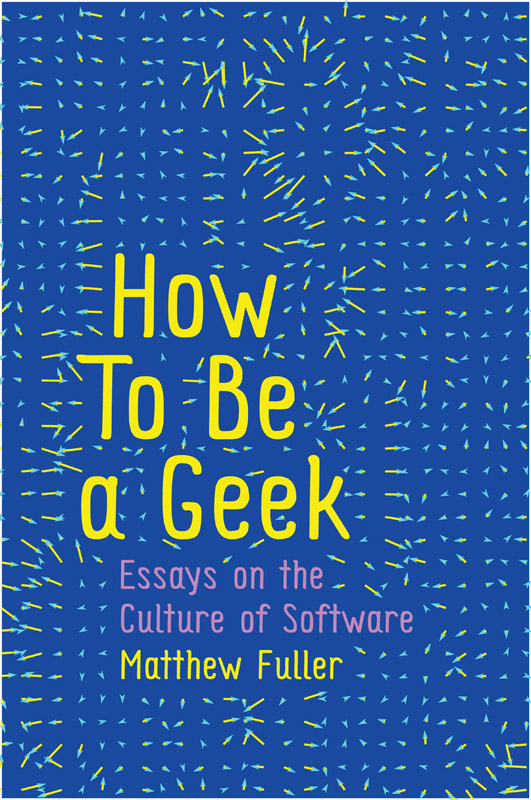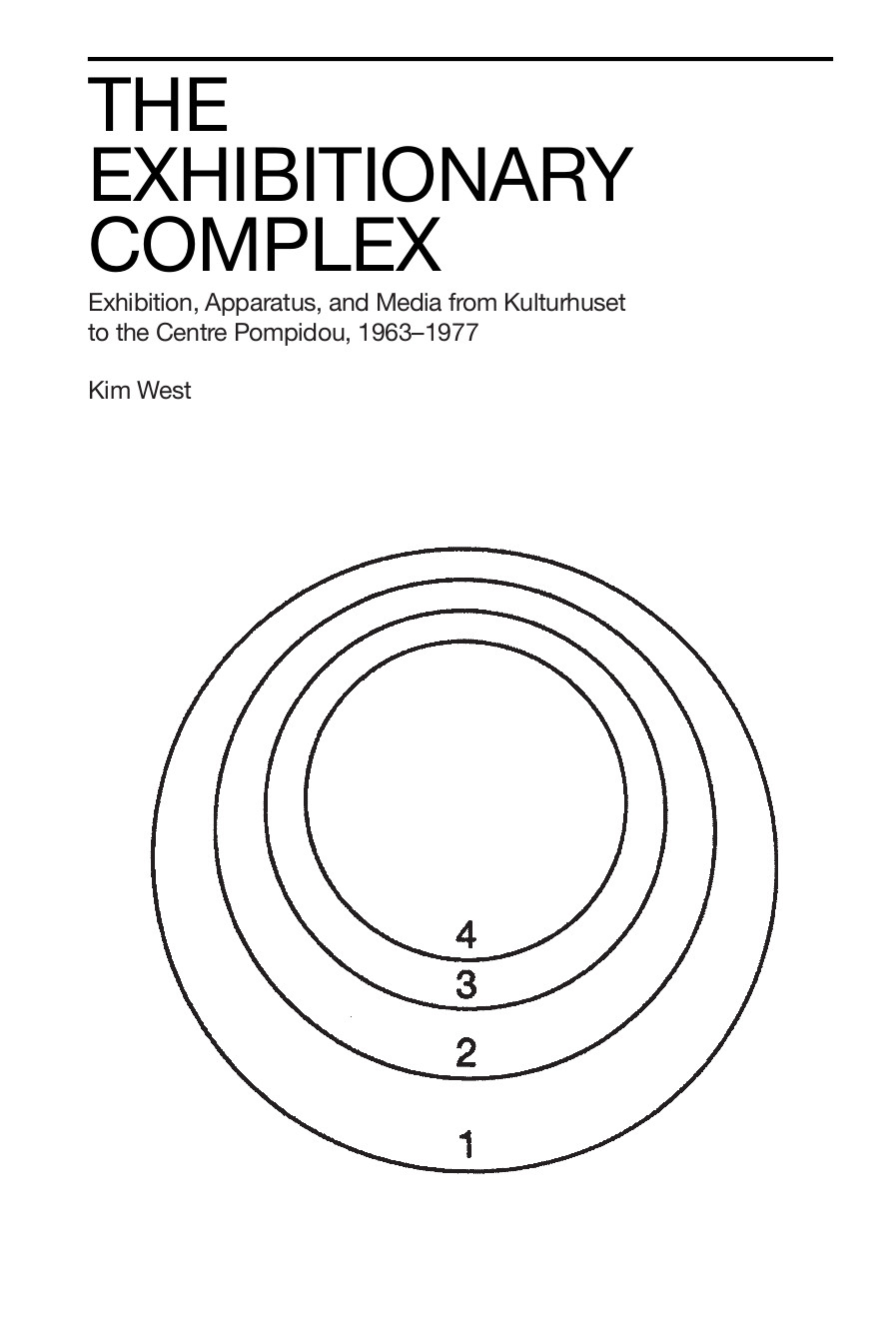Matthew Fuller: How To Be a Geek: Essays on the Culture of Software (2017)
Filed under book | Tags: · aesthetics, algorithm, computation, computing, database, information, language, media, media theory, networks, programming, software, software studies, theory

“Computer software and its structures, devices and processes are woven into our everyday life. Their significance is not just technical: the algorithms, programming languages, abstractions and metadata that millions of people rely on every day have far-reaching implications for the way we understand the underlying dynamics of contemporary societies.
In this innovative new book, software studies theorist Matthew Fuller examines how the introduction and expansion of computational systems into areas ranging from urban planning and state surveillance to games and voting systems are transforming our understanding of politics, culture and aesthetics in the twenty-first century. Combining historical insight and a deep understanding of the technology powering modern software systems with a powerful critical perspective, this book opens up new ways of understanding the fundamental infrastructures of contemporary life, economies, entertainment and warfare.
In so doing Fuller shows that everyone must learn ‘how to be a geek’, as the seemingly opaque processes and structures of modern computer and software technology have a significance that no-one can afford to ignore. This powerful and engaging book will be of interest to everyone interested in a critical understanding of the political and cultural ramifications of digital media and computing in the modern world.”
Publisher Polity, 2017
ISBN 9781509517152, 1509517154
x+233 pages
Kim West: The Exhibitionary Complex: Exhibition, Apparatus and Media from Kulturhuset to the Centre Pompidou, 1963-1977 (2017)
Filed under thesis | Tags: · aesthetics, apparatus, art history, exhibition, information, media, museum, networks, theory

This doctoral thesis “studies the new Information Center model of the art museum that was developed by a group of artists, curators, architects, and activists connected to Moderna Museet in Stockholm between the mid-1960s and the mid-1970s. Through close readings of Moderna Museet’s unrealized Kulturhuset project, and a series of related attempts at rethinking the exhibition and the museum in relation to new information technologies, systems, and networks, it traces the origins, the critical implications, and the effects of this model, according to which the museum should function at once as a catalyst for the active forces in society, a vast experimental laboratory, and a broadcasting station.
In this study, the museum is understood as an exhibitionary apparatus, the specific characteristics of which are configured in relation to other apparatuses for display, distribution, and interaction, which together form an exhibitionary complex, caught in a process of gradual integration with the expanding network of cybernetic media. The study asks under what conditions the exhibitionary apparatus might preserve its particular modes of social and aesthetic experience, while acting as a transformative force on and through the new information environments.”
PhD dissertation in Aesthetics, School of Culture and Education, Södertörn University
Publisher Södertörn University, Stockholm, 2017
Open access
ISBN 9789187843761
359 pages
Review: Anders Kreuger (Kunstkritikk, 2017).
Comment (0)Luciana Parisi: Contagious Architecture: Computation, Aesthetics, and Space (2013)
Filed under book | Tags: · abstraction, aesthetics, algorithm, architecture, cognition, computation, computing, cybernetics, design, evolution, feedback, infinity, information, interaction design, knowledge, media, metaphysics, networks, neural networks, philosophy, processing, randomness, sensors, software, space, temporality, time, topology, variation

“In Contagious Architecture, Luciana Parisi offers a philosophical inquiry into the status of the algorithm in architectural and interaction design. Her thesis is that algorithmic computation is not simply an abstract mathematical tool but constitutes a mode of thought in its own right, in that its operation extends into forms of abstraction that lie beyond direct human cognition and control. These include modes of infinity, contingency, and indeterminacy, as well as incomputable quantities underlying the iterative process of algorithmic processing.
The main philosophical source for the project is Alfred North Whitehead, whose process philosophy is specifically designed to provide a vocabulary for “modes of thought” exhibiting various degrees of autonomy from human agency even as they are mobilized by it. Because algorithmic processing lies at the heart of the design practices now reshaping our world—from the physical spaces of our built environment to the networked spaces of digital culture—the nature of algorithmic thought is a topic of pressing importance that reraises questions of control and, ultimately, power. Contagious Architecture revisits cybernetic theories of control and information theory’s notion of the incomputable in light of this rethinking of the role of algorithmic thought. Informed by recent debates in political and cultural theory around the changing landscape of power, it links the nature of abstraction to a new theory of power adequate to the complexities of the digital world.”
Publisher MIT Press, 2013
Technologies of Lived Abstraction series
ISBN 0262018632, 9780262018630
392 pages
For a New Computational Aesthetics: Algorithmic Environments as Actual Objects lecture by Parisi (2012, video, 72 min).
Reviews: Lecomte (Mute, 2013), Ikoniadou (Computational Culture, 2014).
PDF (24 MB, updated o 2021-10-28)
Comments (2)
